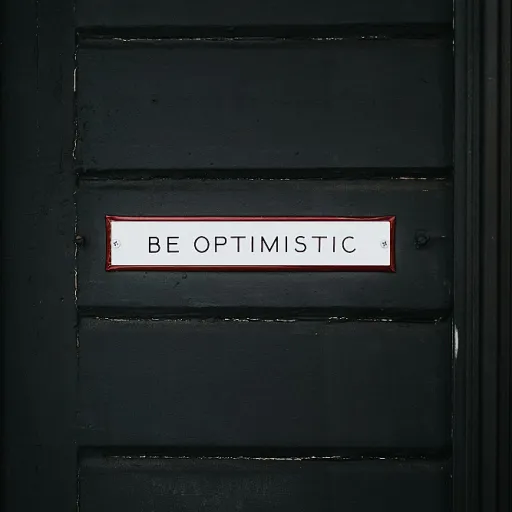
Understanding the role of talent assessments in recruitment process outsourcing
Why organizations rely on talent assessments in outsourced recruitment
Recruitment process outsourcing (RPO) has become a strategic choice for organizations aiming to improve their hiring process and overall talent acquisition. One of the most impactful elements in this approach is the use of talent assessments. These assessments are not just about filtering candidates; they are about aligning the right talent with the business’s unique needs, culture, and long-term goals.
Organizations turn to RPO providers to gain access to advanced assessment tools and expertise that may not be available in-house. These tools help measure a candidate’s skills, cognitive ability, and behavioral traits, offering a data-driven foundation for decision-making. The integration of talent assessments into the selection process helps organizations identify candidates who are not only technically qualified but also fit the role’s behavioral and leadership requirements.
How talent assessments fit into the outsourced hiring process
Talent assessments are woven into multiple stages of the RPO process. From pre hire screening to final selection, assessments measure everything from problem solving skills to leadership potential and job simulations. This ensures that each candidate is evaluated consistently and objectively, reducing bias and increasing the likelihood of successful job performance and long-term retention.
- Pre hire assessments: Used early in the process to filter candidates based on core competencies and cognitive ability.
- Behavioral and leadership assessments: Evaluate how candidates align with organizational values and leadership development needs.
- Work samples and job simulations: Provide real-world scenarios to test job-specific skills and performance.
By leveraging these assessment tools, RPO providers help organizations streamline their hiring process, improve selection outcomes, and support talent development and succession planning. For a deeper understanding of how recruitment firms play a role in this outsourced process, you can explore this resource on the role of recruitment firms in outsourcing.
Key types of talent assessments used by RPO providers
Common Assessment Tools Used by RPO Providers
Recruitment process outsourcing (RPO) providers rely on a variety of talent assessment tools to ensure a strong match between candidates and organizational needs. These tools are designed to measure a wide range of skills, competencies, and behaviors that predict job performance and long-term success. Understanding the types of assessments used can help organizations make informed decisions about their hiring process and talent development strategies.
- Cognitive Ability Tests: These assessments measure a candidate’s problem solving, reasoning, and learning agility. Cognitive ability is often linked to job performance, especially in roles that require quick thinking and adaptability.
- Behavioral Assessments: By evaluating how candidates typically act in work-related situations, these tools provide insights into cultural fit, teamwork, and leadership potential. Behavioral assessments are valuable for predicting how someone will respond to real-world challenges.
- Skills Tests: These tests focus on job-specific abilities, such as technical skills, language proficiency, or software knowledge. They help organizations verify that candidates possess the required competencies before moving forward in the selection process.
- Job Simulations and Work Samples: Simulations place candidates in scenarios similar to those they would encounter on the job. Work samples require candidates to complete tasks that mirror actual job duties. Both methods offer a realistic preview of performance and are highly predictive of future success.
- Personality Assessments: These tools assess traits like motivation, resilience, and interpersonal style. Personality assessments can inform leadership development and succession planning by identifying individuals who align with the organization’s values and business goals.
How RPO Providers Customize Assessments
Leading RPO providers don’t just use off-the-shelf tests. They often tailor assessment tools to reflect the unique requirements of each organization and job role. This customization ensures that assessments measure what truly matters for business performance and talent acquisition. For example, a company hiring for managerial roles may prioritize leadership and decision-making skills, while a business seeking technical talent will focus on specific technical assessments.
In addition, RPO providers leverage data from assessments to refine the selection process over time. By analyzing assessment outcomes and job performance data, they can continuously improve their approach, making hiring more data driven and effective for both immediate and long term needs.
For organizations looking to optimize their managerial staffing through recruitment process outsourcing, understanding the range of assessment tools available is crucial. Learn more about how to optimize managerial staffing through recruitment process outsourcing and the role assessments play in this process.
Benefits of integrating talent assessments in outsourced recruitment
Driving Better Hiring Outcomes with Talent Assessments
Integrating talent assessments into recruitment process outsourcing (RPO) brings a range of benefits that directly impact the quality and efficiency of hiring. These assessment tools help organizations move beyond gut feeling and subjective judgment, enabling a more data driven approach to candidate selection and talent acquisition.- Improved job performance prediction: By using cognitive ability tests, behavioral assessments, and work samples, RPO providers can better predict how candidates will perform in the job. These assessments measure both technical skills and soft skills, offering a holistic view of each candidate’s potential.
- Enhanced selection process: Talent assessments streamline the hiring process by quickly identifying candidates who match the required competencies. This reduces time to hire and increases the likelihood of long term success in the role.
- Objective and fair evaluation: Standardized assessment tools minimize unconscious bias, ensuring that all candidates are evaluated on the same criteria. This leads to a more equitable selection process and supports diversity and inclusion goals.
- Data driven talent development: The data gathered from assessments not only informs immediate hiring decisions but also supports ongoing talent development and succession planning. Organizations can learn from assessment results to identify leadership potential and plan for future business needs.
- Cost efficiency: By reducing turnover and improving job fit, talent assessments help organizations save on recruitment and training costs. The use of job simulations and pre hire tests ensures that only the most suitable candidates progress through the hiring process.
Challenges and pitfalls in implementing talent assessments through RPO
Common Obstacles When Implementing Talent Assessments in RPO
While talent assessments can transform the hiring process, integrating them into recruitment process outsourcing (RPO) is not without its challenges. Organizations often face hurdles that can impact the effectiveness of assessment tools and the overall selection process.
- Misalignment with Business Needs: Sometimes, the chosen assessments do not fully reflect the skills or competencies required for the specific job or organization. This can lead to poor candidate selection and missed opportunities for talent development.
- Candidate Experience Concerns: Lengthy or complex tests may discourage candidates, especially if the process feels impersonal or irrelevant. A negative assessment experience can damage employer branding and reduce the talent pool.
- Data Interpretation Challenges: Collecting assessment data is only part of the equation. Interpreting results accurately and integrating them into hiring decisions requires expertise. Misreading assessment data can lead to biased or ineffective hiring.
- Overreliance on Assessment Tools: Some organizations may depend too heavily on pre hire tests or cognitive ability measures, overlooking other important factors like behavioral interviews, work samples, or leadership potential.
- Legal and Ethical Risks: Using assessments that are not validated or that inadvertently discriminate can expose organizations to legal challenges. Ensuring fairness and compliance is critical.
Lessons Learned from Real-World RPO Case Studies
Case studies from various industries highlight that successful RPO partnerships require ongoing collaboration between the business and the RPO provider. For example, organizations that regularly review and update their assessment tools see better alignment with evolving job requirements and talent acquisition goals. Conversely, those that neglect feedback from candidates or hiring managers often struggle with low engagement and suboptimal job performance outcomes.
Balancing Technology and Human Insight
Assessment tools, including job simulations and behavioral tests, offer valuable data for the selection process. However, relying solely on automated tools can miss nuances in leadership development or problem solving abilities. The most effective RPO strategies combine data driven insights with human judgment, ensuring that assessments measure both current skills and long term potential for succession planning and talent development.
How data from talent assessments informs recruitment strategies
Turning Assessment Data into Strategic Insights
Organizations that leverage recruitment process outsourcing (RPO) often discover that the real value of talent assessments lies in the data they generate. This data, when analyzed thoughtfully, can transform the hiring process from a series of educated guesses into a data driven strategy. Assessment tools—ranging from cognitive ability tests to behavioral interviews and job simulations—produce a wealth of information about candidates. These insights go beyond basic qualifications, revealing patterns in problem solving, leadership potential, and cultural fit. By systematically collecting and analyzing this data, RPO providers help organizations:- Identify which assessment tools most accurately predict job performance for specific roles
- Spot trends in candidate strengths and gaps, informing both immediate selection and long term talent development
- Refine the selection process by learning which assessments measure the competencies that matter most for business outcomes
- Support succession planning by tracking leadership development indicators across candidate pools
Best practices for choosing and customizing talent assessments in RPO
Aligning Assessments with Business Goals
Choosing the right talent assessment tools is not just about picking the latest technology or the most popular tests. It starts with a clear understanding of your organization’s business objectives and the specific skills and competencies needed for each job. The assessment process should support both immediate hiring needs and long-term talent development, including succession planning and leadership development. When assessments measure what truly matters for job performance, organizations see better hiring outcomes and stronger talent pipelines.
Customizing Assessment Tools for Your Organization
Off-the-shelf assessments can be useful, but customizing them to reflect your company’s culture, values, and unique job requirements often leads to more accurate selection and better candidate experience. For example, job simulations and work samples tailored to real business scenarios provide a realistic preview of the role and help assess problem solving and cognitive ability in context. Behavioral assessments can be adapted to reflect the leadership qualities and interpersonal skills valued by your organization.
Ensuring Validity, Reliability, and Fairness
It’s essential to select assessment tools that are scientifically validated and reliable. This means the tests consistently measure what they claim to measure and predict job performance accurately. Fairness is also critical—assessments should not disadvantage any group of candidates. Regularly reviewing data from assessments and analyzing case studies can help identify and address any potential biases in the selection process.
Integrating Assessments into the Hiring Process
For assessments to add value, they must be seamlessly integrated into the overall hiring process. This includes clear communication with candidates about what to expect, providing feedback where appropriate, and ensuring that assessment results are used alongside other data-driven insights. Pre hire assessments should complement interviews, reference checks, and other selection methods, creating a holistic view of each candidate’s potential for performance and growth.
Continuous Learning and Improvement
Finally, organizations should treat talent assessment as an evolving practice. Regularly review the effectiveness of your assessment tools by tracking hiring outcomes, employee performance, and retention data. Learn from both successes and setbacks, and be ready to adapt your approach as your business and talent needs change. This commitment to continuous improvement ensures that your talent acquisition and development strategies remain competitive and effective in the long term.













